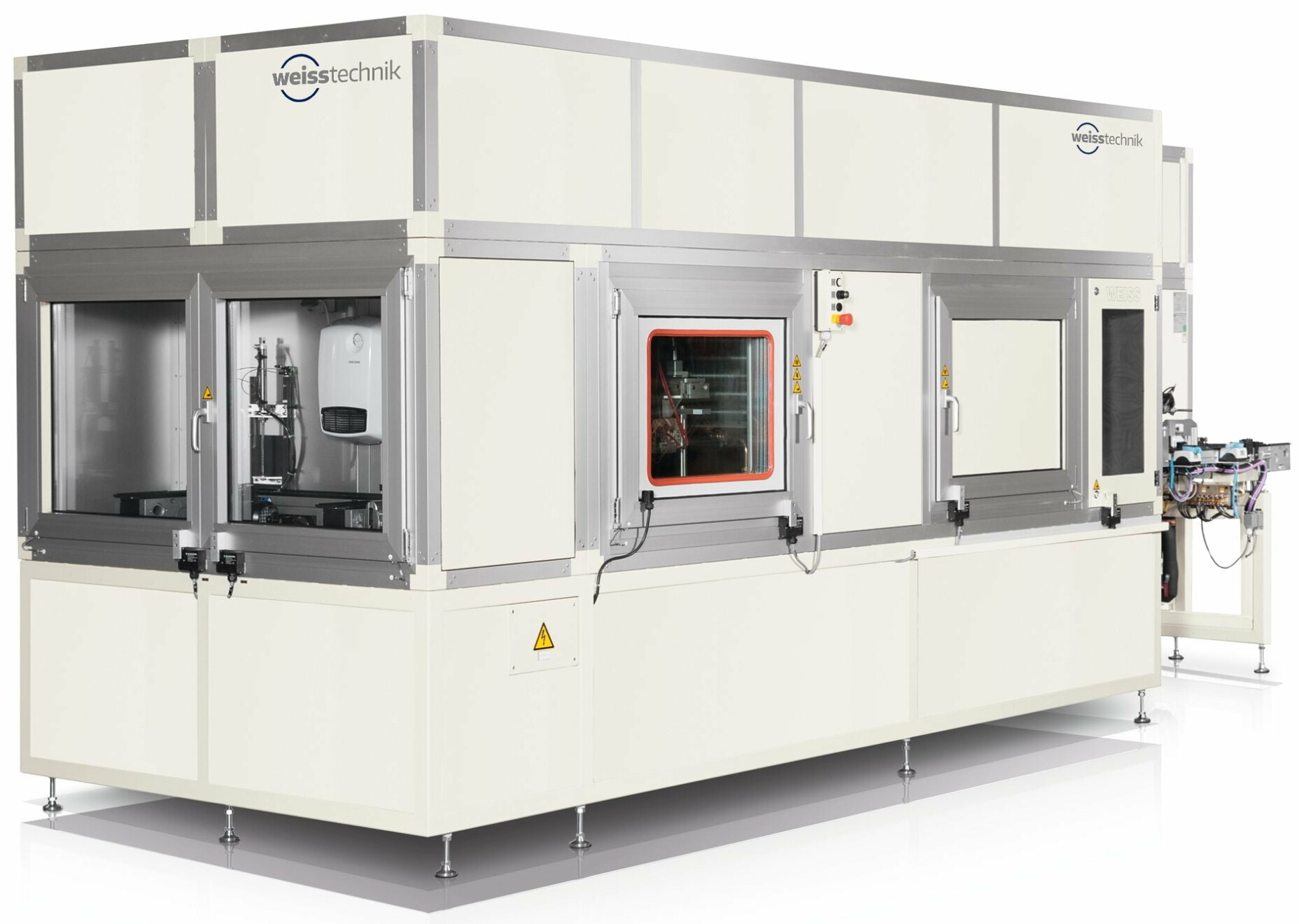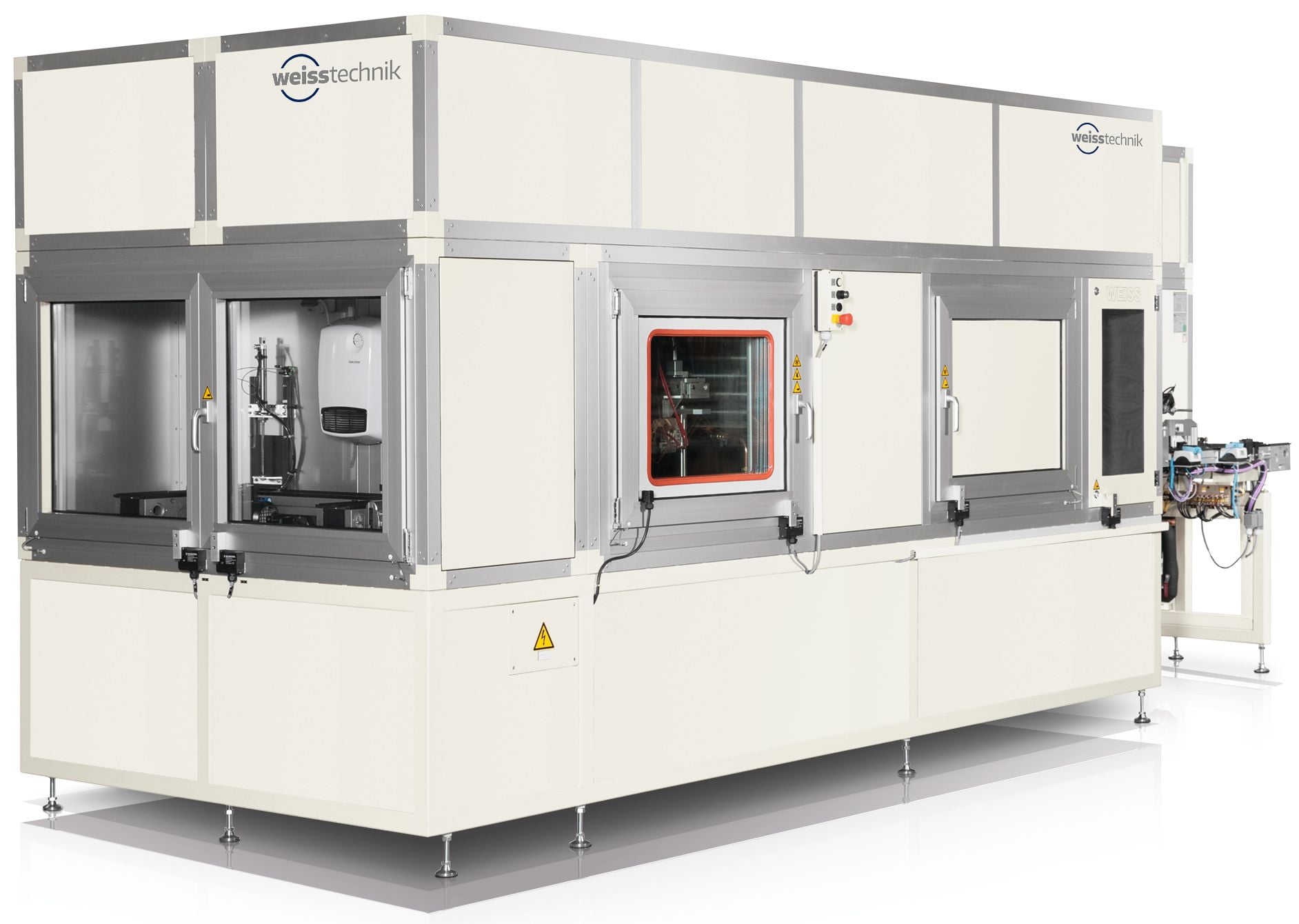
Electronic components must function reliably throughout their entire service life, especially in the case of vehicle safety components. That’s why, after production, these products undergo 100% functional testing at extreme temperatures in testing tunnels. Our partner, Weisstechnik, as an experienced full-service provider, plans and constructs testing tunnels according to customer requirements.

Weisstechnik end-of-line testing tunnels are compact and highly precise conveyor tunnel systems. This tunnel system typically consists of a cooling section, a heating section, and finally another cooling tunnel. These systems are used to test whether electronic components or entire assemblies function under extreme temperatures. Many of the sensitive components tested come from the automotive or electronics industries.
Modular assembly of the entire testing equipment.
End-of-line tunnels with a modular structure are designed to meet demanding testing requirements. They usually perform both electrical tests and combined electropneumatic or electrohydraulic tests. They are designed for continuous industrial operation and are capable of reliably testing even large quantities of samples or final products in a very short time. Tunnel systems can be arranged as a single unit or in a series. If needed, a return system for carriers can be installed under the tunnel system to save overall space, as many users struggle with limited space in production halls. Both manual and automated solutions are available for loading and unloading sample carriers.

Tunnels with controlled temperature and integrated contact station.
The heart of these testing systems consists of tunnels with controlled temperature and a transport system for handling products. The products (test samples) are usually cooled down to -40°C in the initial section of the tunnel. They are then transported to the contact station to undergo functional tests. In the next phase, they are heated up to 120°C. Before entering the cooling tunnel, they undergo a second functional test. After the entire process, the products can be removed and further processed. The temperature change cycle time should be planned precisely to ensure everything runs smoothly without unnecessary losses or delays. After all, in mass production, time is money.
For the smooth integration of the tunnel at the end of the production line, it is essential to carefully plan all interfaces. This applies not only to the connection of the software to the existing PLC, but also to the integration into the production line and to the design of the individual tunnels. The cooling tunnel can be cooled by air, by an air circulation cooling system with a water-cooled heat exchanger, or operated as an air circulation system with direct cooling provided by a cooling unit. The position of the machine unit with control cabinet and compressed air dryer should be planned in such a way that all technical and spatial requirements are met.
Many years of experience.
As a provider of end-of-line equipment, our partner Weisstechnik was responsible for the planning, production, commissioning and maintenance of the end-of-line test tunnel systems. They have more than 30 years of experience in this segment. Here, our expertise in environmental simulation allows us to guarantee customers the exact test temperature. This temperature has a default value of ± 2 K and can be adjusted to ± 1 K if necessary. Using modern technology and high know-how, our partner also develops hardening tunnels and calibration tunnels. In the implementation of these projects, we rely on the expertise and services of a well-coordinated network of specialists. When it comes to operation, our qualified service technicians ensure that the systems function properly.

David
Groh
Sales Manager

Ing. Gabriele
Benaglia
Sales Director